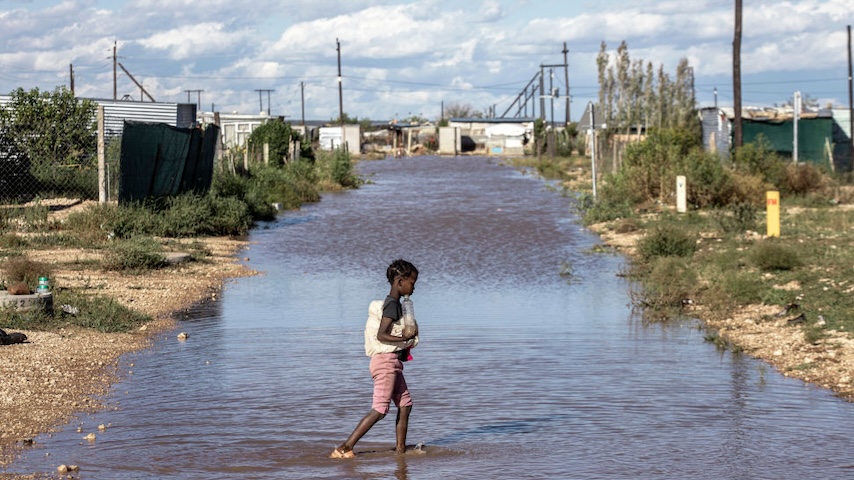Climate Change is Taking Huge Chunks Out of Africa’s Economies
Photo by Per-Anders Pettersson/Getty Images
Africa is home to 18 percent of the world’s population, 20 percent of its landmass, and only four percent of its annual greenhouse gas emissions — or even less examined cumulatively since the Industrial Revolution began. In other words, it has had very little to do with the rising temperatures and sea levels and flood of disasters; but it is already feeling an intense economic crunch from the problem it didn’t cause.
According to a new report from the World Meteorological Organization, African countries are experiencing hits to their GDP between two and five percent annually, billions and billions of dollars that the poorest continent on Earth direly needs going up in smoke. Some countries are being forced to divert as much as nine percent of their entire national budget to respond to climate-related catastrophes.
“While many countries in the Horn of Africa, southern and North-West Africa continued to suffer exceptional multi-year drought, other countries experienced extreme precipitation events in 2023 leading to flooding with significant casualties,” the WMO’s secretary-general Celeste Saulo said in a press release. “These extreme events led to devastating impacts on communities, with serious economic implications.”
The report focused specifically on the climate-related catastrophes of 2023, and there were plenty. Tunisia and Morocco suffered through heat waves so extreme that they set the countries’ all-time temperature highs, of 120 and 123 degrees F, respectively; severe drought was widespread, from those North African regions to Nigeria, Ethiopia, Angola, Madagascar, and the Democratic Republic of the Congo; flooding in Kenya, Somalia, and Ethiopia last spring displaced 2.4 million people, and killed at least 350; and food production was severely strained by drought, heat, and flooding, including up to 80 percent drops in grain harvest in some areas.
And then there was Africa’s biggest 2023 catastrophe, the massive flood in Libya that killed at least 4,700 people with thousands still considered missing. Scientists found that the disaster was made 50 times more likely thanks to climate change; its magnitude was considered “far outside that of previously recorded events.”
Countries across the world are facing more and more severe climate change-infused events, but nowhere are there fewer resources to address them. And it will get worse: the report suggests that climate change adaptation in sub-Saharan Africa will cost between $30 and $50 billion per year over the next decade; other estimates are even higher.
“Africa faces disproportionate burdens and risks arising from climate change related weather events and patterns, which cause massive humanitarian crises with detrimental impacts on agriculture, and food security, education, energy, infrastructure, peace, and security, public health, water resources, and overall socio-economic development,” said Josefa Leonel Correia Sacko, the commissioner for agriculture, rural development, blue economy and sustainable environment at the African Union Commission.
Meanwhile, the rich world continues to drag its heels on helping Africa and other developing regions pay for the damage and adaptation. The promise of $100 billion annually from rich to poor, made way back in 2009 and supposedly due by 2020, only appears to have been fulfilled in 2022, and much of that is still in the form of interest-bearing loans — not exactly the kind of charity economies straining under the weight of debt and warming-induced apocalypse are looking for. This will be one of the most illuminating tests of the coming decades amid the transition to a cleaner world: whether rich countries can convince themselves to bring the developing world along with them, paying for the mess Africa and other poor places played no part in making.